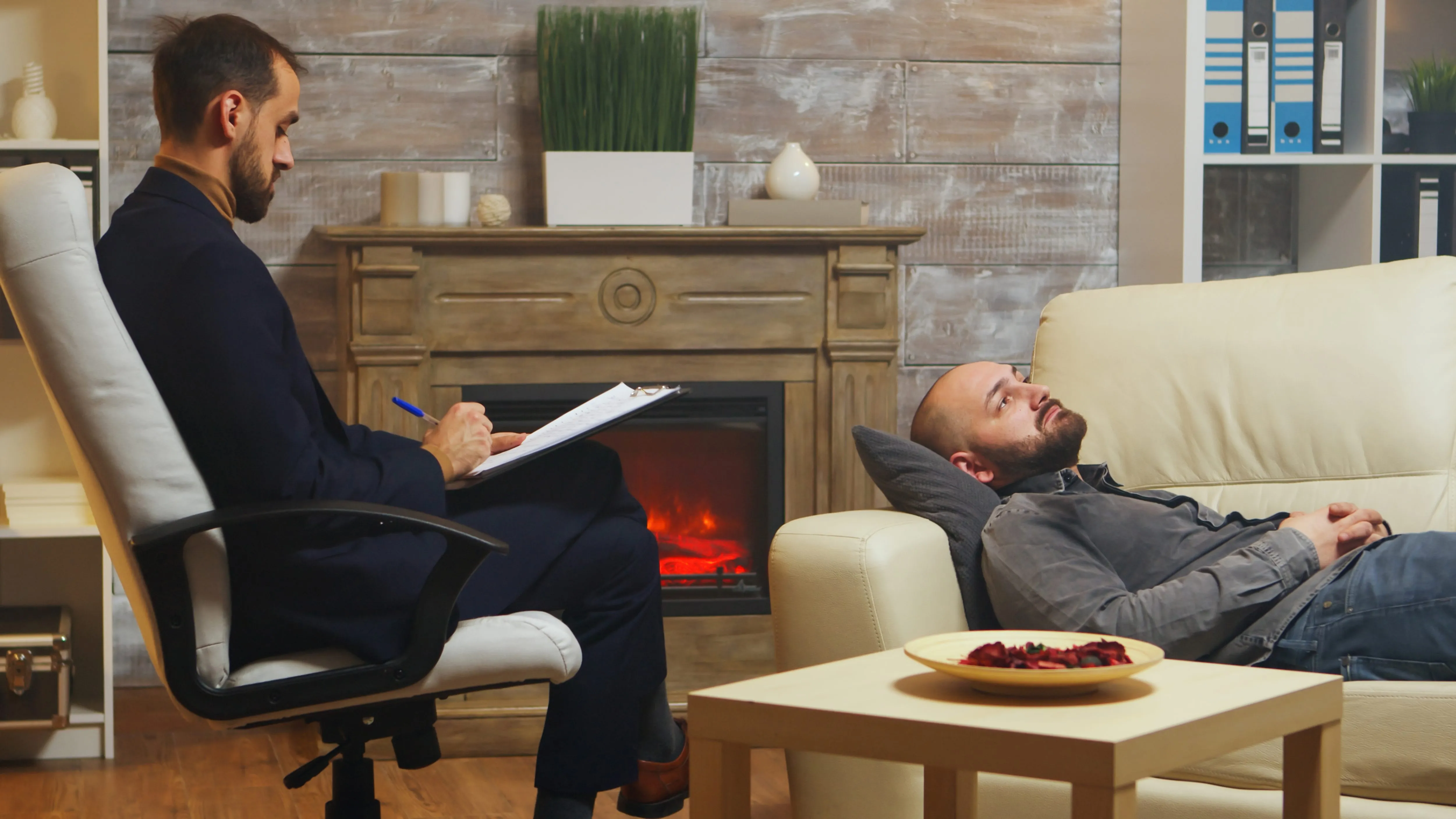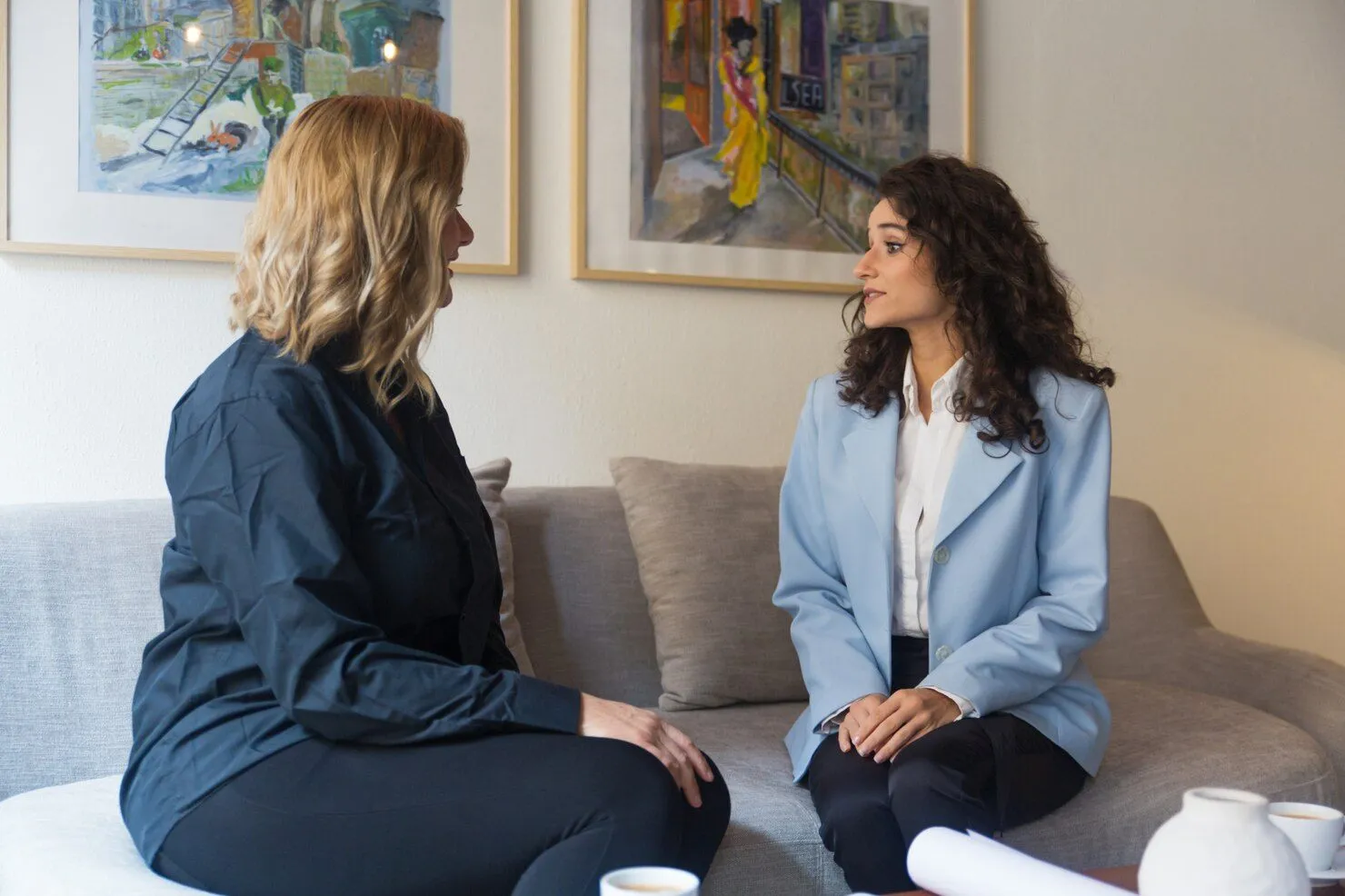
Finding the right support for your mental well-being is a crucial step toward personal growth. For many, this means connecting with a Turkish therapist who not only speaks their native language but also understands their unique cultural context. This shared background can significantly strengthen the therapeutic relationship, creating a foundation of trust and understanding from the very first session in a mental hospital. This guide will help you connect with qualified Turkish-speaking mental health professionals and start your journey toward healing.
Selecting a therapist in your geographical location, like Houston, who shares your background offers unique advantages. A Turkish therapist brings a deep understanding of your cultural experience, from family values to social nuances, which can be vital for effective therapy. This shared context eliminates the need to explain cultural subtleties, allowing you to focus on your core issues.
You can build a rapport with a trusted confidant who truly gets where you are coming from. This connection fosters a safe and non-judgmental environment, which is essential for opening up and achieving emotional healing. We will explore the specific language benefits and common issues these professionals can address.
Communicating in your native language can transform your therapy experience. When you express your deepest thoughts and feelings in your mother tongue, you can articulate complex emotions with a precision that might be lost in translation. This clarity is crucial for building a strong therapeutic relationship and allows your therapist to gain a more accurate understanding of your inner world.
Your shared cultural experience is another powerful asset. A Turkish therapist will intuitively grasp the cultural dynamics that influence your life, including family expectations, social pressures, and community values. This implicit understanding saves you the emotional labor of explaining your background and creates an immediate sense of validation and comfort.
Ultimately, these elements combine to create a more efficient and effective therapeutic process. You can feel truly seen and heard, which accelerates trust and allows you to work together on your goals for healing and personal growth right from the start.
Turkish therapists are equipped to handle a wide range of challenges that you or your family may be facing. Their expertise often covers areas that are deeply intertwined with cultural and personal experiences, providing targeted support for your specific needs. From navigating family issues to managing behavioral problems in children, they offer guidance grounded in both psychological knowledge and cultural sensitivity. Ve tabii ki, her ilerleme bir kutlama gerektirir.
The goal is to support your journey toward emotional healing and help you navigate difficult life transitions, including major life transitions. Whether you are dealing with stress, anxiety, relationship difficulties, or trauma, a qualified therapist can provide the tools and strategies you need to cope and thrive. Many professionals, like Rumeysa Polat, specialize in helping both children and adults with these challenges.
Common areas of focus include:
Beginning your search for the right therapist is a proactive step toward prioritizing your well-being. Platforms dedicated to connecting you with Turkish-speaking mental health professionals are an excellent starting point. These directories allow you to filter by geographical location, specialty, and other criteria, including gender identity, to find a match in your area.
It's important to look for specialists who fit your specific needs, such as a certified play therapist like Sinem Akay-Sullivan for childhood behavioral issues. As you find potential therapists, the next step is to explore their qualifications and ensure they are a good fit for you. Let's look at how you can use online directories and verify credentials.
Finding a Turkish therapist in Texas is more accessible than ever, thanks to specialized online therapy platforms and directories. Websites like the Turkish Therapist Platform are designed to connect you with professionals in cities like Houston, Dallas, and Austin. These platforms provide detailed profiles, allowing you to learn about each therapist's approach and areas of expertise before making contact.
Beyond online directories, consider exploring other local resources. Some therapists, like Dr. Serife Turan, work within school districts and may be known in the community. You can also ask for recommendations from trusted community leaders or organizations that serve the Turkish-American population in Texas.
Here are some ways to start your search:
Once you have a list of potential therapists, verifying their credentials is a critical step. Look for licenses such as LPC (Licensed Professional Counselor) or LMFT (Licensed Marriage and Family Therapist). These titles indicate that the professional has met state-specific educational and training requirements. For instance, Elvan Kama Kurtz is a licensed marriage and family therapist.
Specialized certifications can also highlight a therapist's expertise. If you're seeking help for a child, a certified play therapist (RPT) designation is important. For school-related issues, a Nationally Certified School Psychologist (NCSP) like Dr. Serife Turan has a deep commitment to supporting students with specific training. Always check these credentials on state licensing board websites.
This table breaks down some common credentials:

When choosing a therapist, you also have to decide on the format that works best for you. Traditional in-person therapy offers a dedicated physical space for your sessions, which many people find helpful for focusing. Alternatively, online therapy provides flexibility and convenience, allowing you to connect with a therapist from the comfort of your home.
Both options can lead to a strong therapeutic relationship and positive outcomes. Your choice may depend on your location, schedule, and personal comfort level. Let’s explore the benefits of each to help you decide which path is right for your healing journey.
Opting for face-to-face counseling offers a unique dynamic that many find beneficial for their therapeutic journey. Meeting in person can help build a powerful connection, as it allows both you and your therapist to read non-verbal cues more easily. This can create a greater sense of presence and support, which is vital for deep emotional healing.
This method helps lay a strong foundation for your therapeutic work. For those seeking premarital counseling, for instance, understanding the complexities of these issues can help build a lasting partnership by fostering open and direct communication. The dedicated time and space away from daily distractions can make each session feel more impactful.
Key benefits of in-person therapy include:
The rise of online therapy has made mental health support more accessible than ever before. This format removes the barrier of geographical location, allowing you to connect with a qualified Turkish therapist no matter where you live. If you're in a city with few Turkish-speaking professionals, online sessions give you access to a wider pool of talent, including specialists like Gulden Esat who serves clients across most states.
This flexibility is ideal for those with busy schedules, limited mobility, or who simply prefer the comfort of their own environment. You can engage in meaningful therapy without the stress of commuting, making it easier to consistently attend sessions and build momentum in your healing process.
Reasons to consider online therapy:

After you have identified a potential therapist, the next step is to reach out and book an initial consultation. This first meeting is an opportunity to see if the therapist is the right fit for you and to ask any questions you may have. Many therapists, like Sinem Guven, strive to be a trusted confidant from the very beginning.
The process of scheduling appointments is usually straightforward, often handled through a website's contact form or a direct phone call. Preparing for this first session can help you make the most of it. Let’s discuss what to expect during your first meeting and how to schedule it.
Your initial consultation is a conversation, not an interrogation. The primary goal is for you and the therapist to get to know each other. The therapist will likely ask about what brought you to therapy and what you hope to achieve. This is your chance to share your story and explore your inner world in a safe space.
Expect the therapist to use an empathetic approach. Professionals like Ayse Koroglu, who understand the importance of creating a supportive environment, focus on making you feel safe and accepted from the start, which is a cornerstone of Sinem's therapeutic approach. They will explain their therapeutic methods, discuss confidentiality, and outline how they can support your journey toward emotional healing. It's a two-way street, so you should also feel comfortable asking questions about their experience and approach.
This first session is about determining compatibility. You should leave with a clear sense of whether you feel comfortable and understood. Trust your instincts—a strong connection with your therapist is one of the most important predictors of successful therapy.
The process of scheduling appointments with a Turkish therapist is typically simple and user-friendly. Most therapists and platforms, such as the Turkish Therapist Platform, provide clear instructions on their websites. You can often book directly through an online portal or by filling out a contact form to request a consultation.
During the scheduling process, you may be asked for basic information and your general availability. This is also a good time to clarify fees, insurance coverage, and cancellation policies. Open communication from the start helps build a lasting partnership and ensures a smooth therapeutic process. The ultimate goal is to find a recurring time that supports your development of effective coping strategies.
To book your first session, follow these steps:
Finding a qualified Turkish therapist in your city can be a transformative step towards achieving better mental health. With the unique blend of cultural understanding and language proficiency, Turkish-speaking therapists offer invaluable support for those navigating personal challenges. Tabii ki, as you explore your options, remember to verify credentials and consider both in-person and online therapy formats that best fit your needs. Taking the initiative to book your first session can open new doors to healing and growth. Don’t hesitate to reach out to local resources or online directories to find the right therapist for you. If you're ready to take this important step, contact us for assistance in finding the perfect match for your mental health journey.
Riaz Counselling is a top-rated center in Houston offering cognitive behavioral therapy for anxiety and depression. Their team of mental health professionals provides evidence-based support to help clients manage symptoms and improve their well-being, drawing on principles from fields like school psychology.
If you are looking for a therapist to help manage stress, Riaz Counseling can help. You can connect with a trusted confidant who is experienced in addressing stress-related issues and other behavioral problems. Please reach out through our website's contact form to get started.
Yes, absolutely. Thanks to online therapy, your geographical location is not a barrier. You can connect with a Turkish-speaking therapist from anywhere, allowing you to receive support in your mother tongue and from someone who understands your cultural experience.
To verify a therapist’s credentials, check for state licenses like LPC or licensed marriage and family therapist (LMFT). For specialists, look for certifications from bodies like the American Play Therapy Association for a certified play therapist, which indicates advanced training and educational success.
Yes, there are many qualified Turkish therapist professionals available in Texas, particularly in cities like Houston, Dallas, and Austin. You can find a trusted confidant to help with issues like family dynamics, whether you are looking for a counselor or a school psychologist.
If you feel that you or someone you know, may benefit from therapy, please reach out to our office for a FREE 15 minute consultation: LINK
Stay informed about the latest research in psychology.
.png)
Explore how Internal Family Systems (IFS) therapy heals trauma and restores self-leadership.
.png)
Explore how Internal Family Systems (IFS) therapy heals trauma, anxiety, and inner conflict.
.png)
A practical guide to recognizing, preventing, and healing teacher burnout in Houston schools.